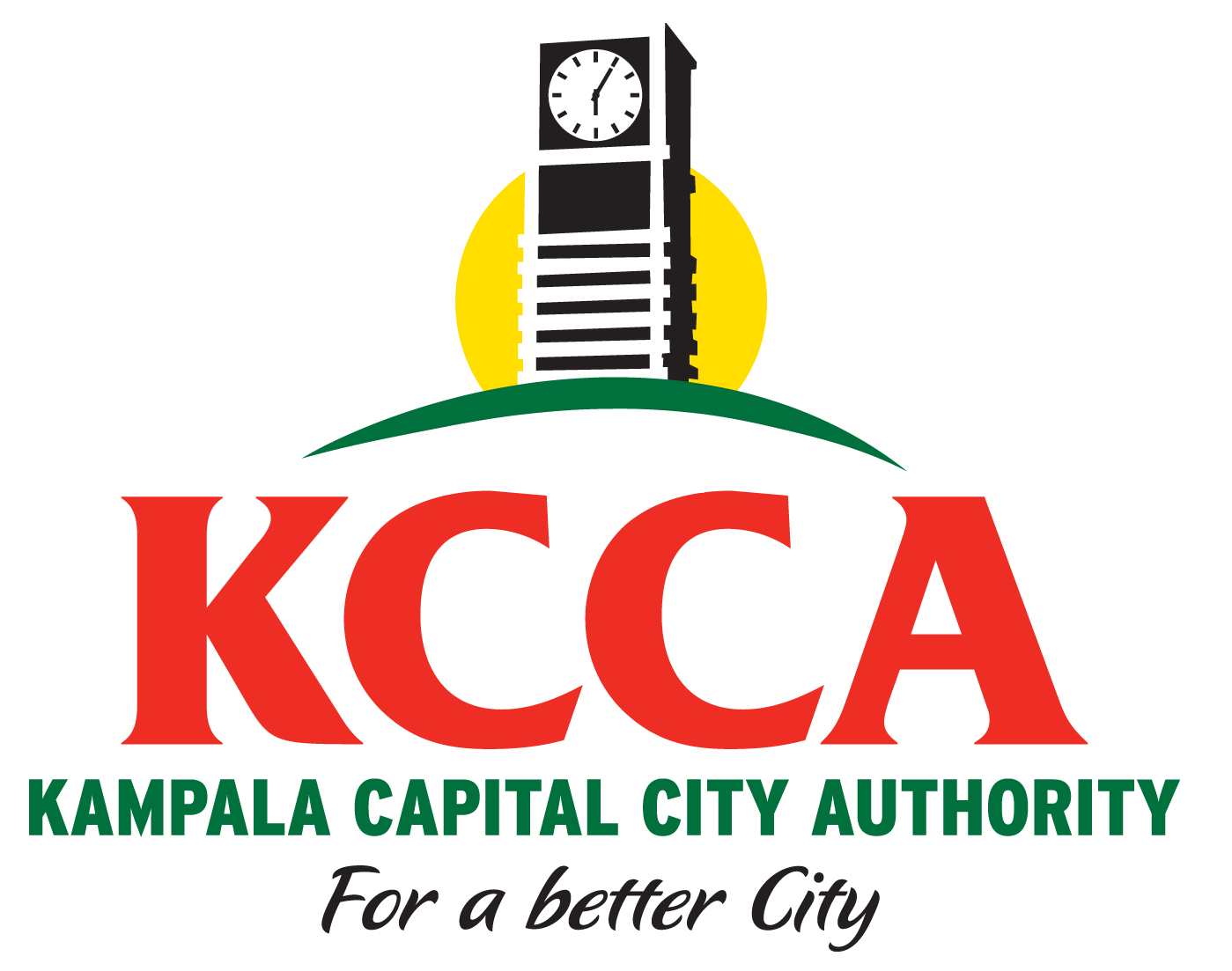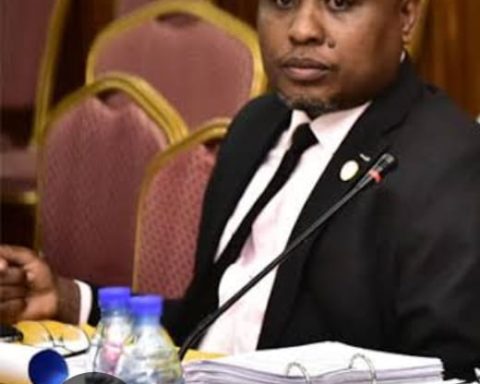Kampala: If there is any government Authority that frustrating President Yoweri Museveni’s fight against corruption, then it is the City Hall based Kampala Capital City Authority (KCCA), because investigators indicate that officials there are involved in gross abuse of government funds and tax payers’ money.
This is because officials at KCCA not only embezzled funds for government projects like the Youth Livelihood Programs(YLP), KCCA Youth Fund and others but also engage in dubious contractual dealings with companies that either bloat contract prices or do shoddy work, so long as they wet the beaks of officials on the Contracts Committee who give them the deals.
An audit report compiled by the Capital City Public Accounts Committee (CCPAC) Chairperson Dan Kabaziguruka and received on July 1st, 2020 by the Offices of the Lord Mayor Elias Lukwago and the Executive Director respectively, for the Financial Years 2016/17 and 2017/18, exposes how KCCA officials shamelessly diverted money that was meant to help youth within Kampala and its suburbs uplift their livelihoods, incur avoidable expenditures with intent to pocket kick-backs among other forms of financial abuse.
Exposing how KCCA officials pocketed funds which were released by government to finance Youth Livelihood and Youth Fund Programs, the audit report states in part that; KCCA Youth Fund is a revolving fund which started in 2011 with UGX3,500,000,000 billion meant to provide affordable credit to the youths living and working in Kampala.
At first it was implemented by KCCA but when a M.O.U was signed between KCCA and Centenary bank UGX3,300,000,000 billion was transferred to the Bank to be managed under Cente Fund.
However, according to Kabaziguruka’s CCPAC, UGX23,185,000 the difference of the funds received from government (UGX3,500,000,000) less what was transferred to Centenary Rural Development Bank (UGX3,300,000,000) and the earlier disbursement of UGX176,815,5000 by KCCA was not accounted for.
It was also observed that the set criteria was not followed in certain circumstances in regards to the age of the beneficiaries, the employment status, residence, gender quotas and the amounts dispersed, which affected the target group and the final intended impact of the program.
The auditors also noted that from the review undertaken, KCCA’s role on the fund is silent, and to that effect, KCCA officials did not avail auditors with any review or analysis made by management on the beneficiaries, which analysis would have been very useful information for decision making.
There was also Non-compliance with guidelines specifically, town clerks weren’t signing on loan agreements yet this was a key component for the appraisal of the beneficiaries.
When asked about the anomalies, the Accounting Officer at KCCA said that the Bank was engaged over these anomalies and provided missing documentation in some areas and also pledged to be more stringent on the access criteria.
More Financial Rot At KCCA
Besides misappropriating the Youth Fund Programs, The auditors observed in that KCCA officials also engaged in other forms of financial abuse, which include but is not limited to the following;
Mismatch In LST Collections Reported
The Committee observed that Local Service Tax (LST) collected during the year 2017 according to the Auditor General’s Report was UGX11,467,838,898. However, from the report received from the Directorate of Treasury Services it was UGX12,373,882,980, making a difference of UGX905,044,082.
However, the Committee was not availed with any clarification or the reconciliation statement of the two figures. It was thus noted that there is need for improvement in the collection and management of LST by KCCA officials, hence the Director Revenue Collection should come up with a robust mechanism of collecting revenue.
Mismanagement of KCCA Cash Office
According to the regulations set by (Permanent Secretary/Secretary to the Treasury) PS/ST, an agency should use a cash limit of Shs.40m per month.
However, KCCA has consistently retained and used cash above the limit set by the PS/ST and there is no evidence that an approval from the PS/ST was sought for this exception.
The Committee observed that there were excess funds as balance brought forward in 2012 which were kept in drawers as cash at hand purportedly being used for emergencies without any documented policy/guidelines to manage this float.
These amounts were never recorded nor disclosed in the KCCA Books of Accounts. There was no way to verify the balances and usage of this money given it was tracked using manual spread sheets (Excel) that keep the running totals and were always altered to suit the circumstances hence not reliable.
A further review of the details of the cash book, for the month of October 2018 revealed that during the period, of a total of Shs153M transactions made, only Shs83M had vouchers issued against the payments.
However, even then, the Committee could not verify the authenticity of these payments and whether they were approved by the responsible officer.
CPAC also observed instances where several payments with different dates were being made on a single voucher.
Avoidable Expenditures
During the review of the procurements for City roads design update and Construction 2015-17 (KCCA/WRKS/15-16/00074/Lot-1/4), the Committee observed that although the bid documents clearly specified under B-4 costing consideration, that the successful contractor would include a 4WD double cabin pickup, driver, fuel and servicing and also specified the expected monthly distance to be travelled by the vehicles as 750-1200km; the matter of the vehicle was again part of the negotiations where KCCA agreed to pay UGX60,000,000 for the same vehicles as handling fees to Sterling Civil Engineering Limited.
The Accounting Officer submitted that the Employer’s requirements in the Bid document was for provision of a 4WD pickup as transport to client staff whose rate shall include provision of a pickup driver, fuel and servicing. At the time of negotiation the contractor stated that the statement of requirements didn’t state that the vehicle would revert to the employer. As such the contractor stated that the rate he indicated in the bid was based on the understanding that the vehicle would revert to him at completion of the project.
The Committee observed that because of the ambiguity in the general specifications (Section GCC 14.07) which states that the vehicle may belong to either the employer or the contractor, KCCA expressed interest in the car during negotiations and opted to pay the contractor only handling fees of UGX30m for each vehicle if the vehicle is to return to the employer at the end of the contract. However, no payments have been made to date.
It was observed that since the cost of the vehicle was to include driver, fuel servicing and also specified 750-1200km, it is therefore not clear what was entailed in the handling fees which were chipped in at the negotiation stage.
The auditors also noted that all contractors except Sterling accepted to return the vehicles to KCCA upon conclusion of the contract at no cost, which has since left unanswered questions about that particular company.
Contract Variations
The Committee also noted persistent contract variations in lump-sum contracts which is in direct contravention of the Public Procurement and Disposal of Public Assets (PPDA) provision that lump-sum contracts shall be used where there is clearly defined deliverables and further observed that KCCA does not obtain value for money in these variations to the contracts as they exorbitantly increase the final price of the contract.
A review of some of the contract files revealed the following;
In Lot 2 contract to Energo Projeck Limited
(i) Resulting from a contract variation of Bakuli Market lane road (1.0km) to Lungujja Road (1.6Km) at a cost Shs8.6Bn, the extra works of 0.6km was constructed at an exorbitant cost of Shs18.6Bn per Km! Considering that the contractor was already on site and had already mobilized, this cost was expected to be lower.
(ii) The committee observed that the contractor was also paid Shs3.5Bn as extra fixed costs to be incurred in the additional works which required a time extension of 10 months. This amount is much higher than would normally have been incurred as mobilization costs for a road of 0.6km.
(iii) The value of the additional works for which the variations were done of Shs3,398,926,450 gave rise to additional extra costs of Shs5,711,131,605 relating to time related costs. Therefore the approval of this extension was not prudent.
(iv) They noted that there were persistent changes in prices from an initial contract price of Shs54Bn to Shs65Bn which excludes others increments such as interests on delayed payments.
The Committee observed that KCCA is losing value for money through these imprudent contract variations.
Another example of a lump-sum contract which was riddled with variations was Lot 4 contract to Sterling Civil Engineering Limited for Design, Upgrade reconstruction and upgrading of various roads in Nakawa Division.
(i) On Kaziri road, the initial contract for 0.75km was put at a cost of Shs2,265,965,452. At this cost, the rate of 1.0km would cost Shs3,021,000,000. However, there was a variation increasing the road length from the initial 0.75km to 0.85km an additional 0.1km.
The committee noted that this additional 0.1km cost of Shs851,827,865 putting the rate per KM at an exorbitant Shs8,518,000,000.
(ii) In a further variation, Kisaalita Road of 0.7km previously costing Shs1,320,704,535 was substituted for Banda Central of 0.9km at a construction cost of Shs2,626,170,790. The extra 0.2km on Banda Central cost Shs1,305,466,255. In per KM comparison, the 0.2km extension was at a rate of Shs6,527,331,275 per km whereas the initial 0.7km was at Shs1,864,951,792 per kilometer.
We shall bring you serie three as we debunk the rot in KCCA..
![]()



























